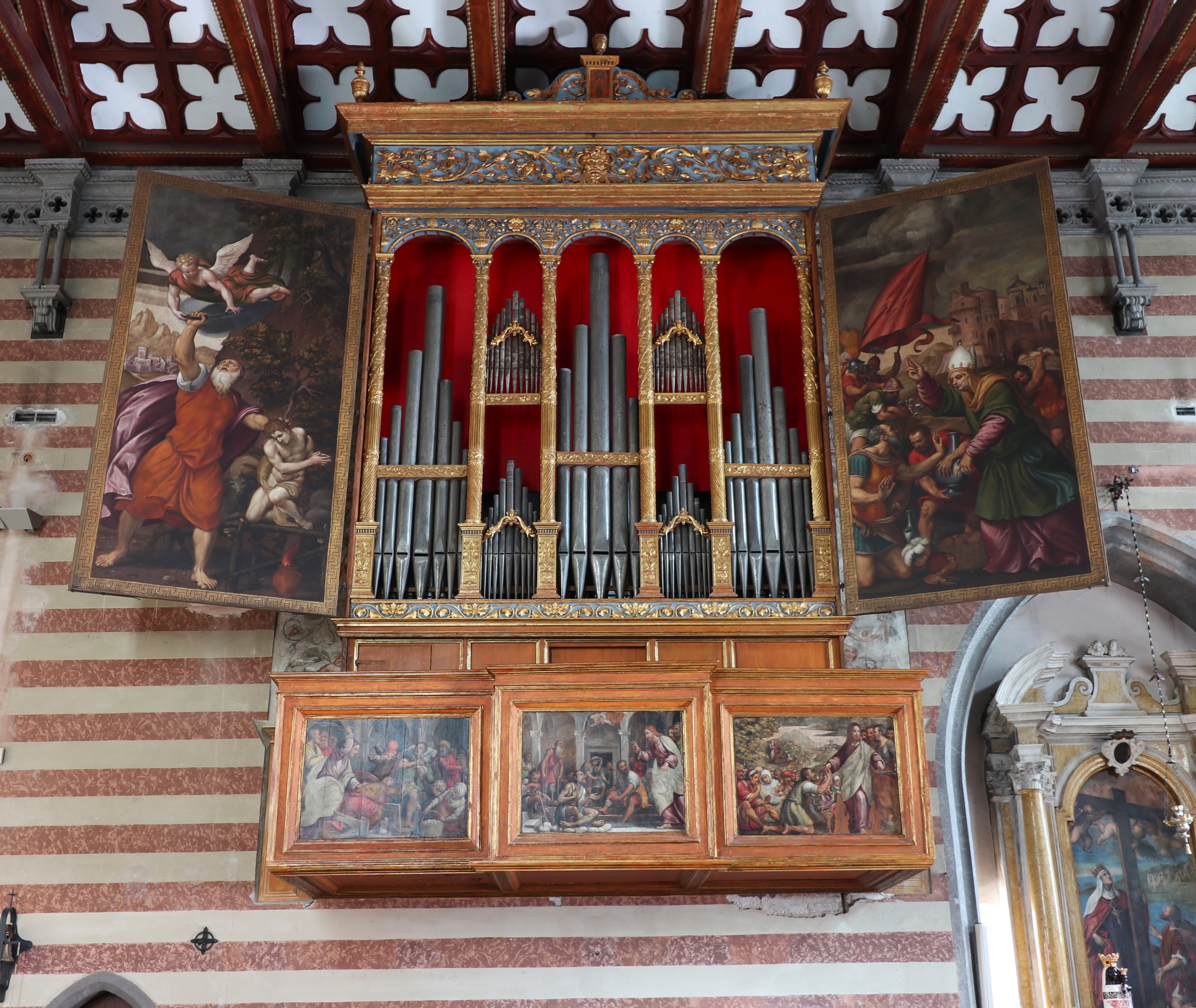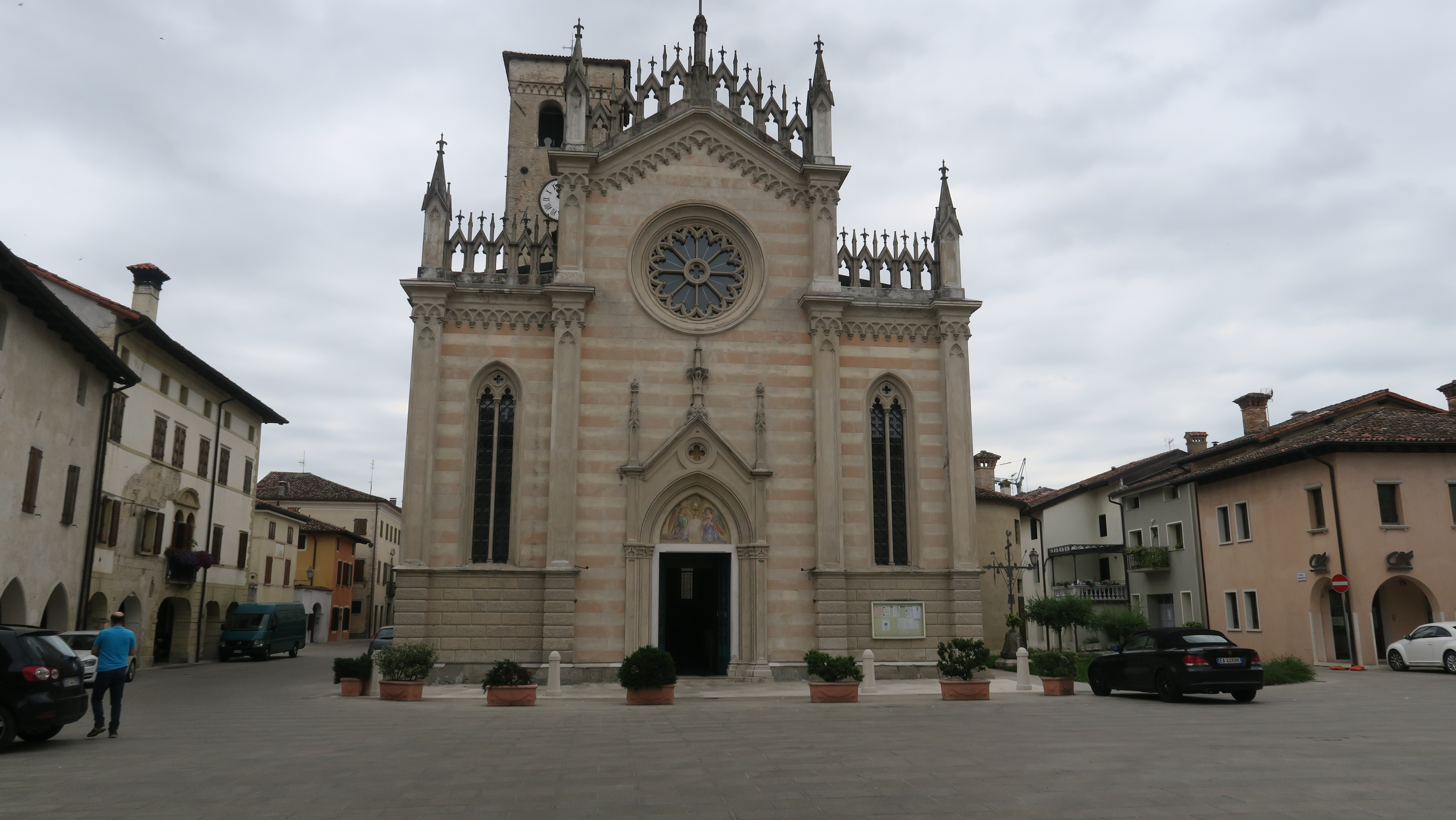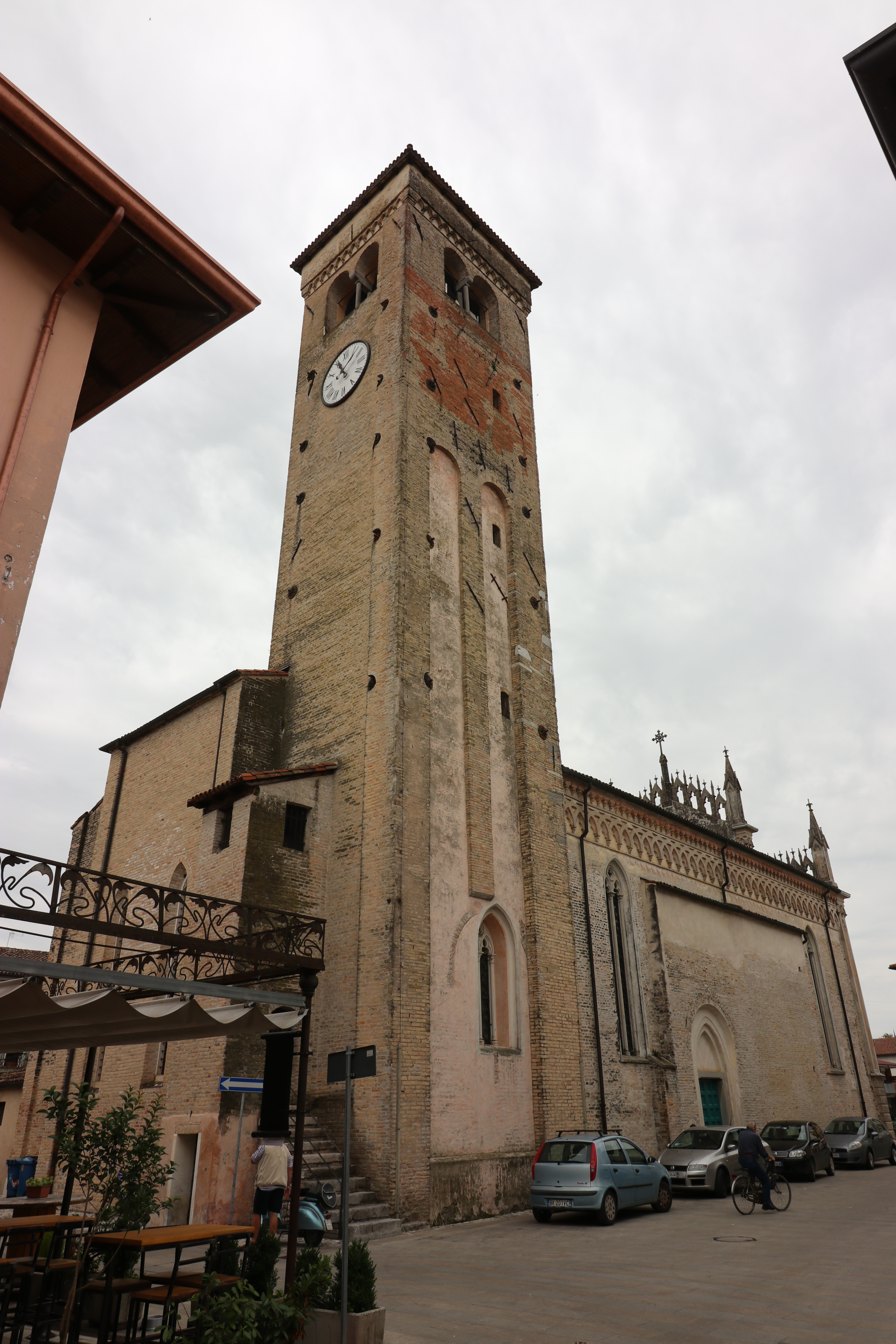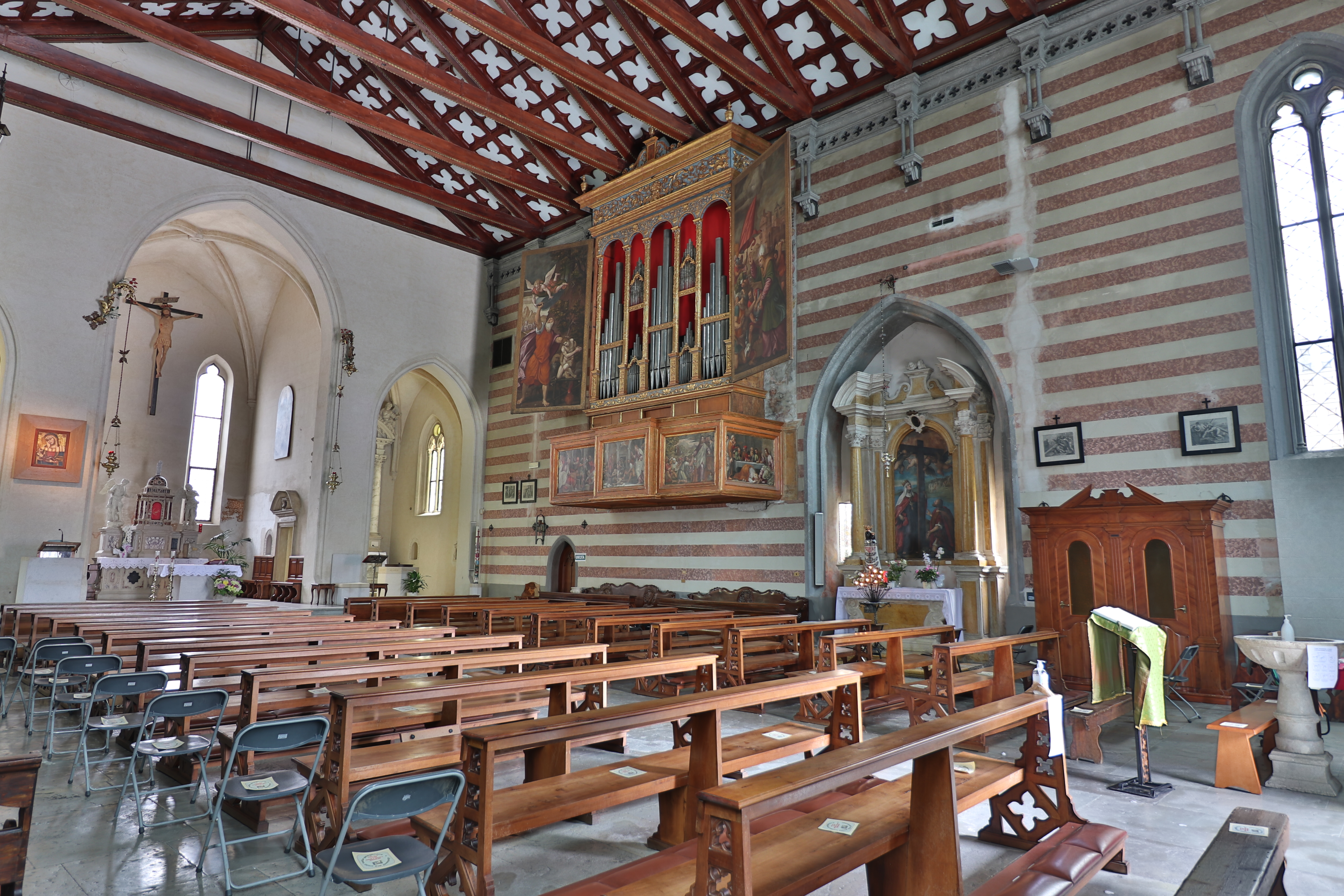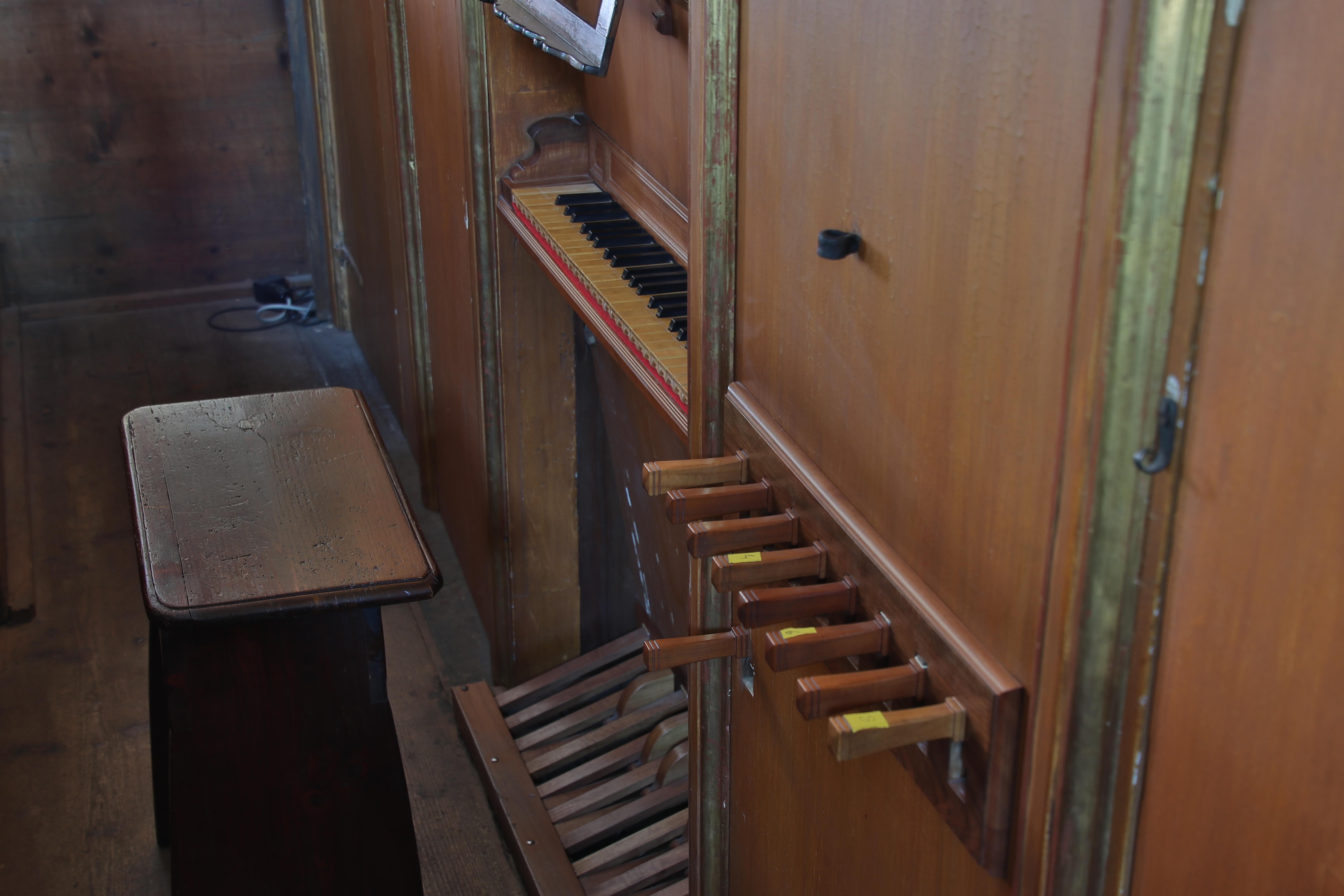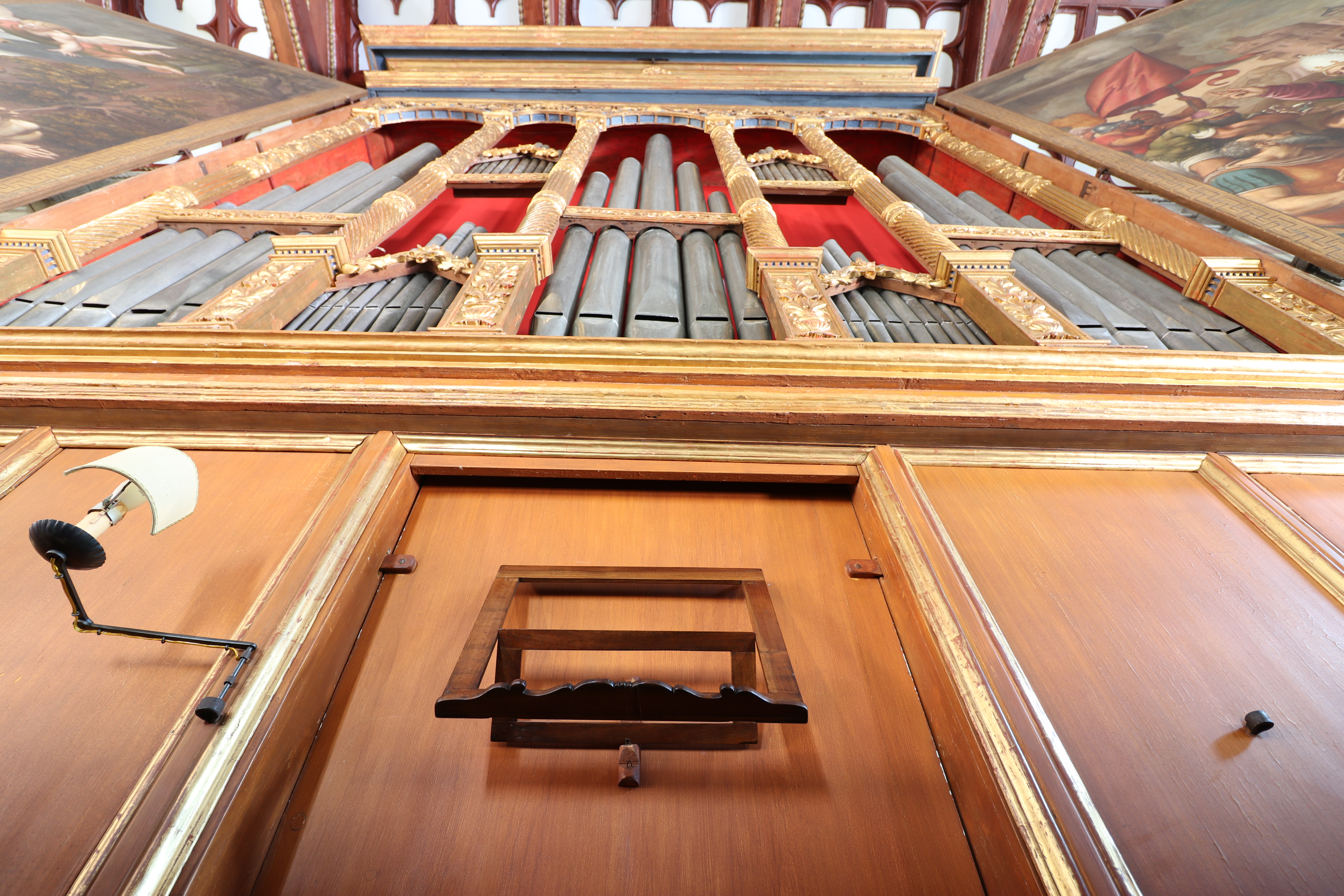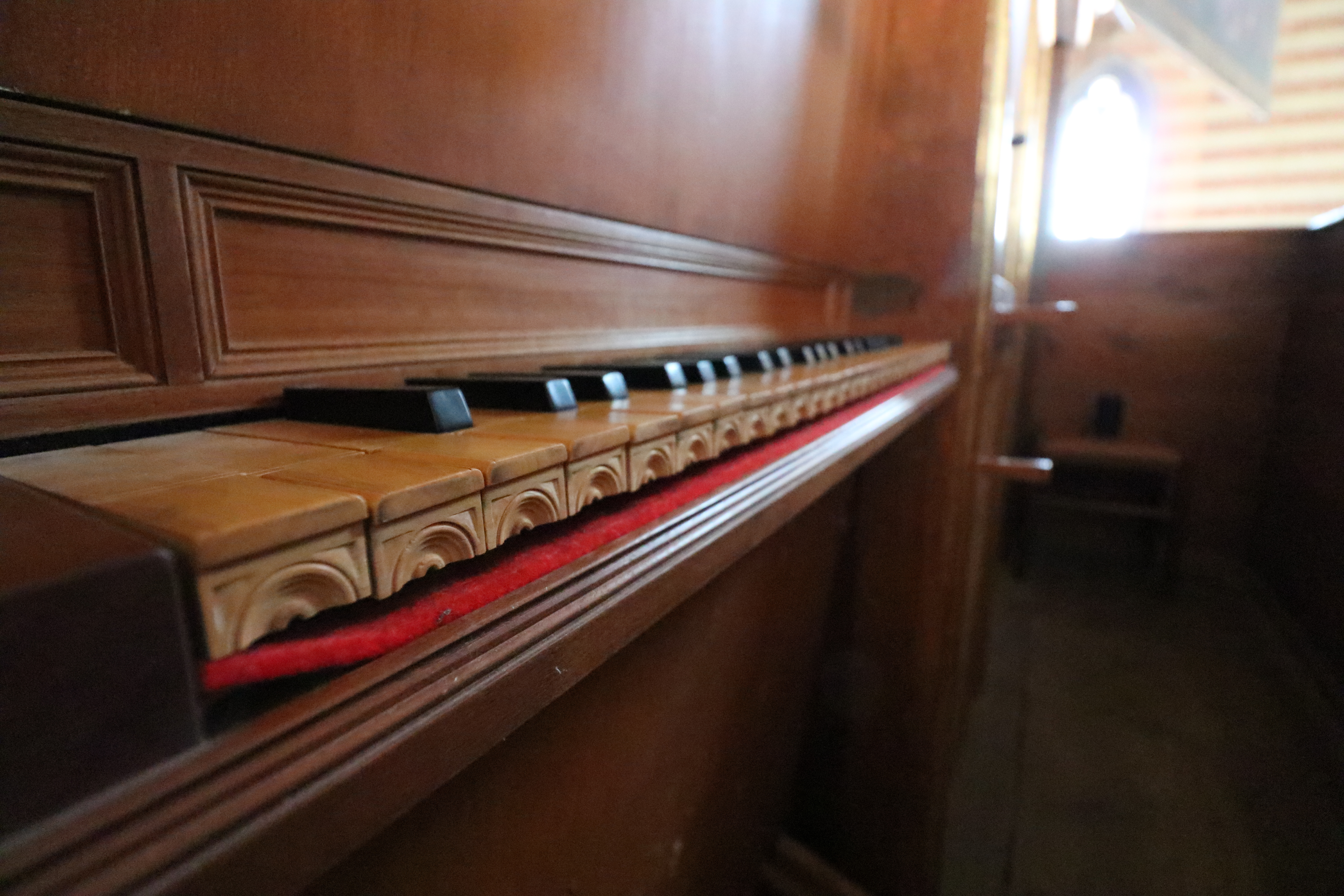Valvasone, Duomo del Santissimo Corpo di Cristo
| Builder | V. Colombi |
|---|---|
| Year | ca. 1533 |
| Period/Style | Renaissance |
| Stops | 8 |
| Keyboards | 1 |
| Keyaction | tracker/mechanical |
| Tuning | 1/4 Comma Meantone at 490 Hz |
| Sampleset |
Available
 , sampled by
Sonus Paradisi
, sampled by
Sonus Paradisi
|
The organ in the gothic church of St. Corpus Christi in Valvasone was constructed by Vincenzo Colombi in 1532–1533. It was located in a balcony on the right wall of the church. The organ case was completed in 1535, and between 1535—1538 it was decorated with carvings done by Girolamo di Venezia and donated by Tommaso Mioni da Udine. The organ was to be further embellished by paintings by Il Pordenone (Giovanni Antonio de' Sacchis), but he died before the work could be finished. After 1539, the paintings were instead completed by Pomponio Amalteo. The doors of the organ case depict scenes from the Old Testament: the Sacrifice of Isaac is on the left wing panel, and the Sacrifice of Melchizedek is on the right wing panel. On the balcony itself, there are scenes from the New Testament.
Various changes to pipes and stops were carried out during the seventeenth through nineteenth centuries. At the beginning of the twentieth century, the organ was no longer playable and was left abandoned.
The first restoration of the instrument occurred during 1972–1974 and was performed by Alfredo Piccinelli. A second restoration by Francesco Zanin followed in 1999. Zanin brought the instrument back to its original Renaissance condition, including the original spring windchest.
The organ consists of a single manual with an unusual (by today's standards) compass of 47 keys (FGA-f3) and a pull-down pedal of Italian style (FGA-d1). The stops form a typical Italian plenum composed of individual principal-scaled ranks. There is also a flute at 4' pitch. The organ has a tremulant, labeled "Fiffaro" under its switch. The organ is winded by three wedge bellows, and the wind pressure is 43 mm (water column measurement).
Various changes to pipes and stops were carried out during the seventeenth through nineteenth centuries. At the beginning of the twentieth century, the organ was no longer playable and was left abandoned.
The first restoration of the instrument occurred during 1972–1974 and was performed by Alfredo Piccinelli. A second restoration by Francesco Zanin followed in 1999. Zanin brought the instrument back to its original Renaissance condition, including the original spring windchest.
The organ consists of a single manual with an unusual (by today's standards) compass of 47 keys (FGA-f3) and a pull-down pedal of Italian style (FGA-d1). The stops form a typical Italian plenum composed of individual principal-scaled ranks. There is also a flute at 4' pitch. The organ has a tremulant, labeled "Fiffaro" under its switch. The organ is winded by three wedge bellows, and the wind pressure is 43 mm (water column measurement).
| Manuale |
|---|
| Tenori 12' |
| Ottava (8') |
| Quinta Decima (4') |
| Decima Nona (2 2/3') |
| Vigesima Seconda (2') |
| Vigesima Sesta (1 1/3') |
| Vigesima Nona (1') |
| Flauto in XV (4') |
1615494283-Facoli-Tedesca dita LAustria-Valvasone
0:00
0:00
1615484032-A Gabrieli - Intonazione Secondo Tono
0:00
0:00
1615349139-Merula Intonazione nono tono
0:00
0:00
1615494080-Frescobaldi-Canzona dopo LEpistola-Valvasone
0:00
0:00
1614873338-Zipoli
0:00
0:00
https://www.sonusparadisi.cz/en/organs/italy/valvasone-virtual-organ.html
 Pipe Organ Map
Pipe Organ Map